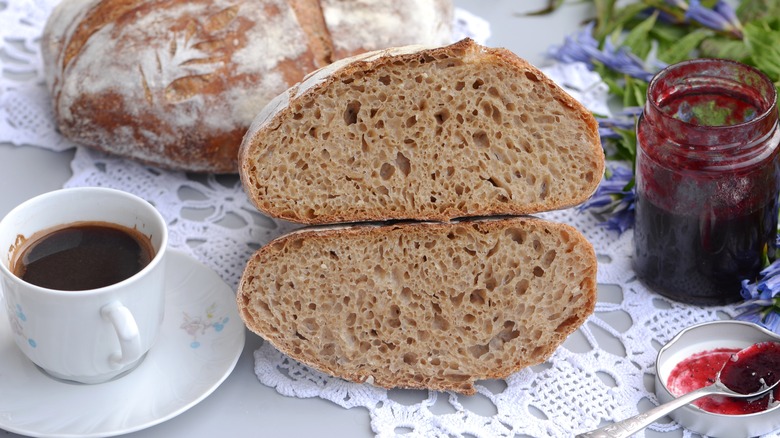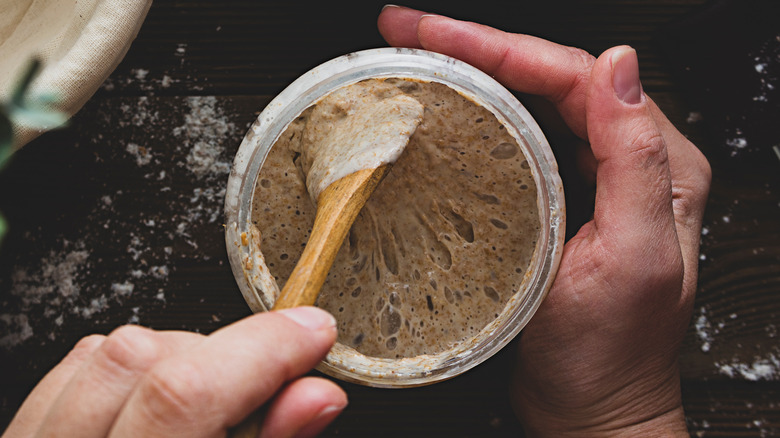What Happens When You Add Coffee To Your Sourdough Starter
If ever there were ever food and drink that were made for one another, it would be bread and coffee. Enjoying some buttered toast, pastry, or breakfast casserole over a morning brew is an ideal breakfast for many of us. However, when it comes to adding coffee to bread, there is some room for caution. Swapping in brewed coffee to a bread recipe is a simple one-to-one ratio of water to coffee. This works particularly well for yeasted doughs with high hydration. The acidity of the brew creates a good environment for gluten to grow and yield a better rise, along with a nicely browned and flavored crust. Working coffee with straight sourdough is a bit different, however.
The key lies in the fact that you are not adding any commercial yeast to a sourdough starter. The idea behind having a sourdough starter is to take advantage of the natural fermentation that occurs when you let water and flour sit together for a long period of time. It acts as a leavening agent where naturally occurring yeast and bacteria add flavor and yield a good rise.
While you can add coffee to your sourdough starter, it is not recommended. There is a particular naturally occurring yeast in sourdough starters, and the caffeine in the coffee poses a problem when it comes to getting a good rise.
Inhibited yeast activity
The specific yeast in caffeine can inhibit the growth of Saccharomyces cerevisiae, also known as baker's yeast. Studies have shown that caffeine will target this yeast and inhibit cell growth and fitness, and potentially cause DNA damage. What this means for the naturally occurring baker's yeast in your sourdough is that you are not going to get the same kind of rise and growth as you would if you'd simply omitted it.
There is a catch, though. In small amounts — say a few teaspoons of instant coffee or one to two shots of espresso — caffeinated coffee will do very little damage to the yeast of the bread, but you don't want it to be your only liquid. Stick to only one part coffee and more water. This dilutes the coffee enough to counteract the effects of caffeine.
There will still be some growth inhibition, and what you'll get is baked bread with fewer air pockets and a closer crumb. What you give up in airiness, however, is made up for in flavor. Coffee is known to bring out some of the more sour and nuanced elements in the bread. As long as you're prepared for this to occur, you won't be disappointed if your sourdough turns out a little flatter than it otherwise would have.

